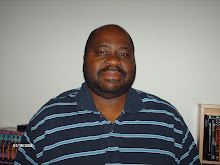Here's the script for this week's "Sports at Large," which airs each Monday at 5:30 p.m. and again on Tuesday mornings during "Maryland Morning" at 9 a.m. on WYPR, 88.1 FM in Baltimore. You can hear the station through streaming audio at www.wypr.org.
There are many unknowns left in the matter in which a reporter for ESPN named Erin Andrews was apparently filmed surreptitiously while she was in a hotel room, up to and including who did it.
What we do know is the perpetrator is subhuman and deserves to be punished to the limit that the law will allow for robbing Andrews of her privacy and taking away her sense of security.
But we would do a terrible disservice to Erin Andrews and every woman who makes a living in sports, in front or behind a camera, if we were to casually move on to the next topic when the person or persons who filmed Andrews is caught and put on trial.
For those who don't know her, Andrews is a 31-year-old woman who serves as a sideline reporter during ESPN and ABC telecasts.
Her contributions to a telecast typically consist of asking inane questions to a coach trying to rush off the field or the court at halftime of a game or tossing in trivial tidbits about one of the participants during a lull in the telecast.
That, in and of itself, doesn't make Andrews unusual among sideline reporters. Generally speaking, it's a superfluous position, no matter who does it, male or female.
The camera loves Erin Andrews, and many people, OK, men, love her for reasons that have little to do with her knowledge of a cover-two defense.
Chat rooms and blogs and Twitter postings serve as testament that sports fans, the overwhelming majority of them male, find Andrews irresistible.
And it's not just fans. There's a YouTube clip of the Tennessee men's basketball coach enthusiastically grabbing Andrews during an interview. And then there's former Orioles pitcher Rick Sutcliffe who practically leered at Andrews on air during an ESPN baseball telecast last year.
The only surprise for me in this story is that it didn't happen sooner. What I'm about to say will not come as news, but the American culture objectifies women.
Sports magnifies that objectification. Think not? Then ask yourself why former tennis player Anna Kournikova, who never came close to winning a major tournament, yet dominated endorsements and magazine covers.
ESPN has barred New York Post reporters from appearing on the channel because the newspaper ran still images from the video of Andrews that appeared online.
It's laudable that ESPN executives want to protect Andrews. Too bad they didn't take that approach a few years ago, when some of them bounced 50-something Lesley Visser from the Monday Night Football sidelines for a younger woman.
And what were they thinking this year, when they allowed an ESPN The Magazine writer to describe the size of basketball player Candace Parker's breasts in a story?
It's too late to give Erin Andrews her sense of security back. But that doesn't mean that we can't try to create a better climate for all the Erin Andrews to come.
